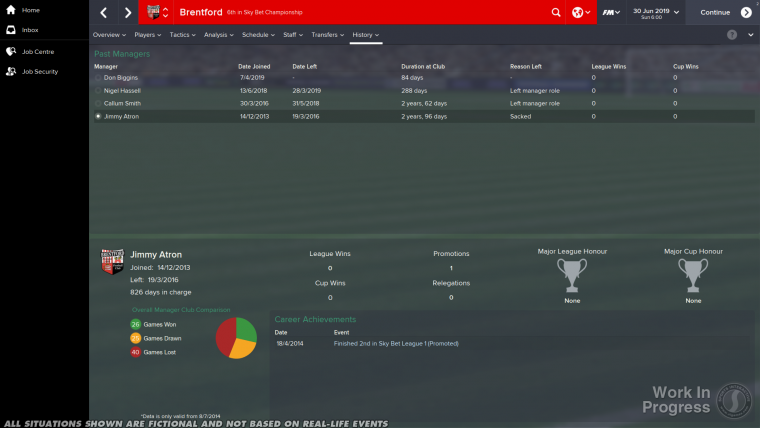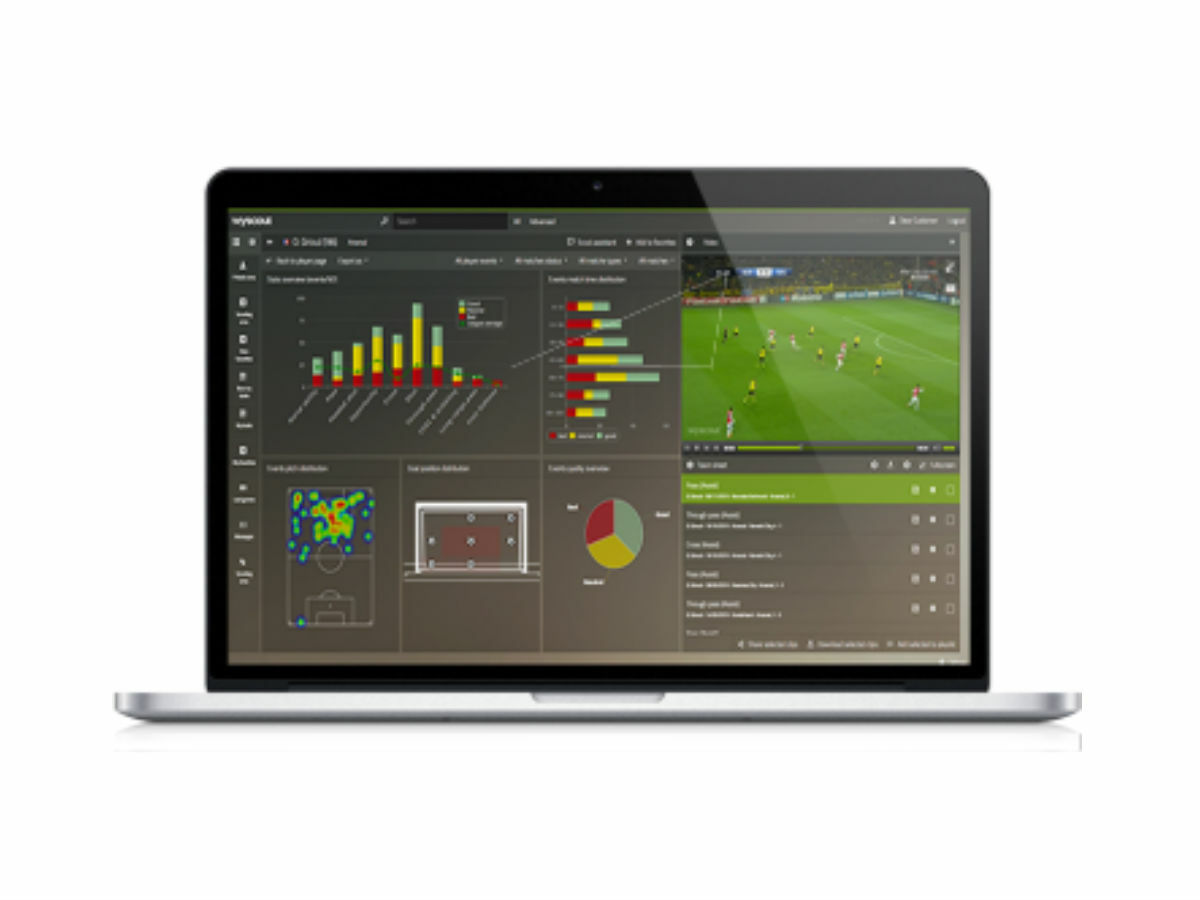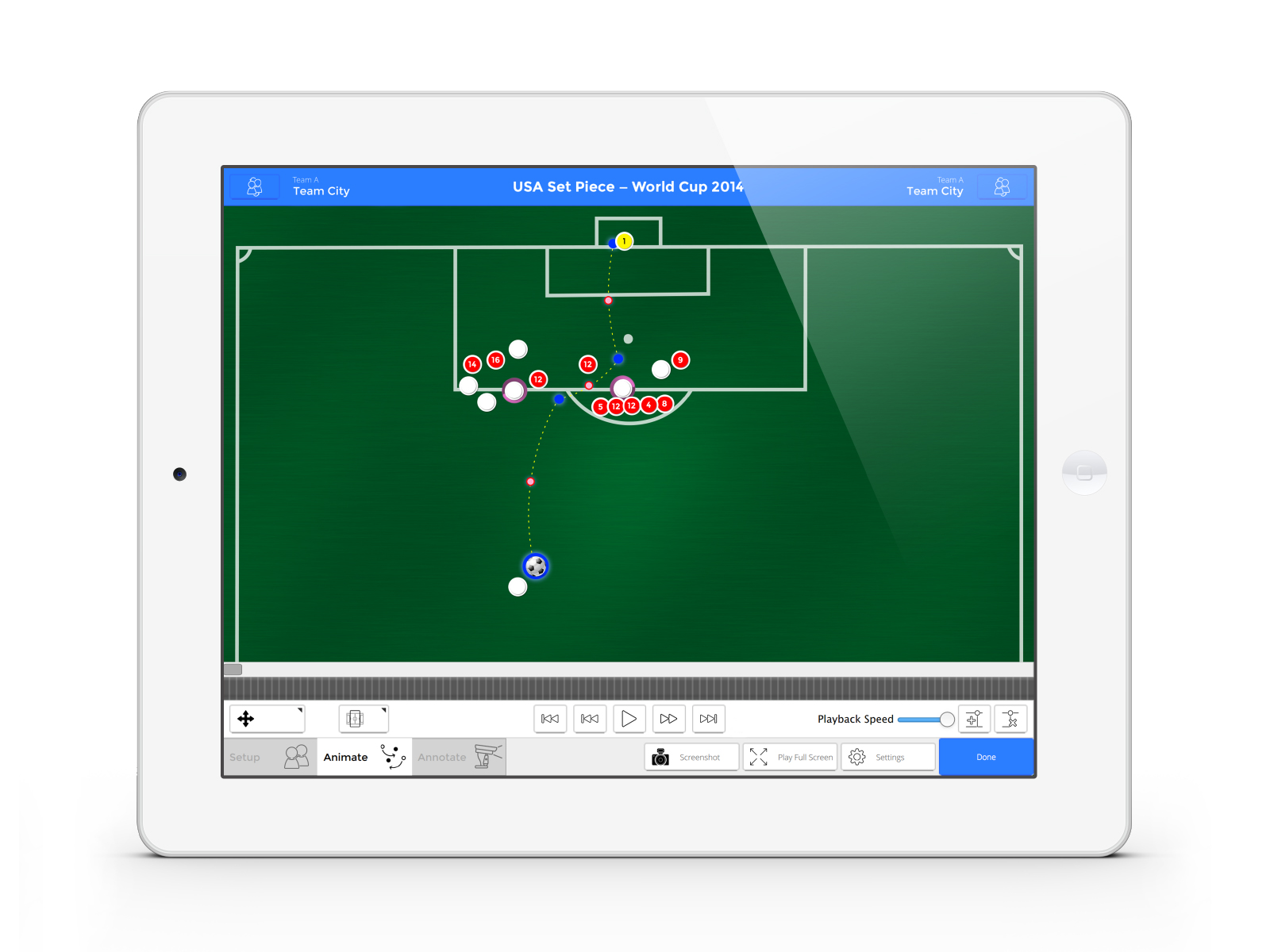How Football Manager changed the beautiful game
As Football Manager 2015 makes its debut this week, we look at how the time-sapping soccer sim has influenced the world’s biggest sport for real
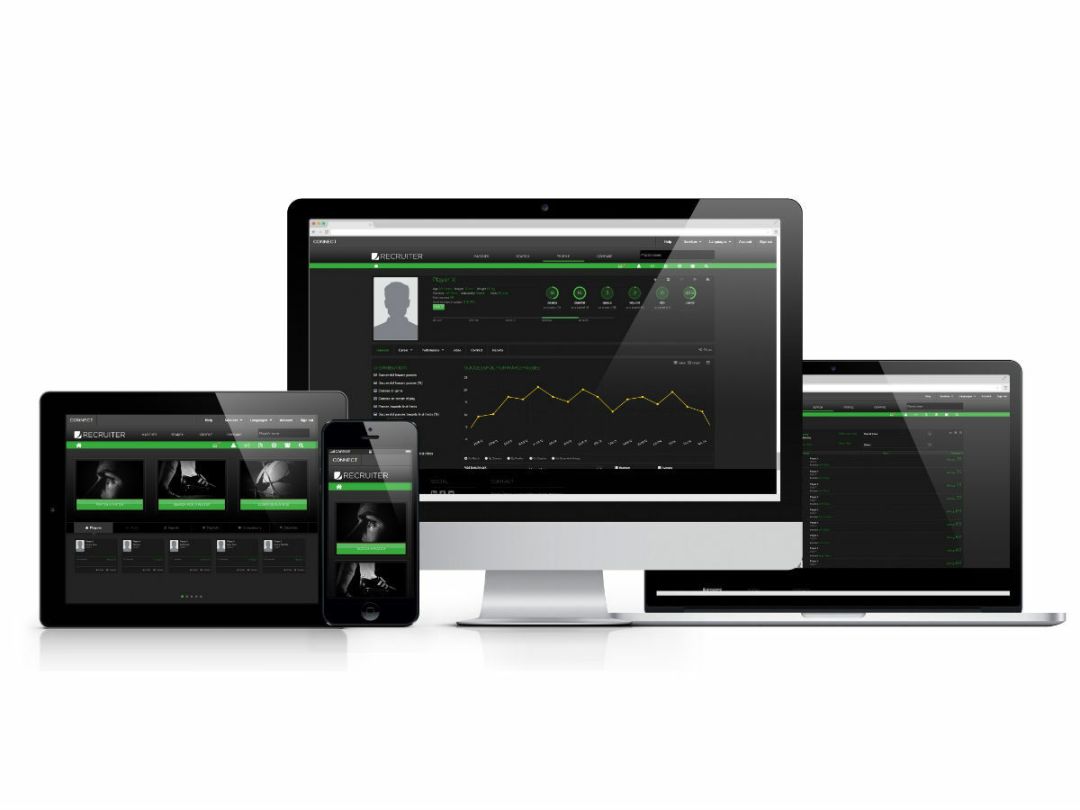
Lionel Messi was just 13 years old when Jon McLeish scouted the Argentine superstar for the first time.
But Jon, the son of former Scotland and Aston Villa manager Alex McLeish, didn’t spot Leo on the streets of Rosario, or the training pitches at Barcelona’s legendary La Masia academy – he was playing Football Manager on his PC.
That was in 2001, when the game was still known as Championship Manager, and when 19-year-old Jon told his dad this kid was going to be a world beater the then Rangers boss laughed it off. And understandably so – Jon was just a teenager and it was just a game, right? But today his discovery might be taken more seriously.
The special one
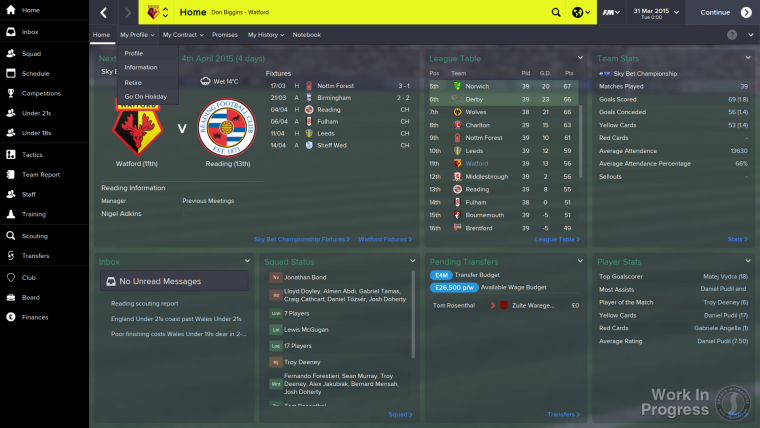
“When Andre Villas-Boas was Jose Mourinho’s chief scout at Chelsea he admitted that he was using Football Manager as a reference tool,” says Miles Jacobson, a Watford season ticket holder and director of the game’s parent studio Sports Interactive. That was the first sign of validation for the game from within the sport itself. The latest is a deal to supply player data to performance analysis giant ProZone’s Recruiter tool, which means 30 clubs across Europe are now using the same database you (and Jon) play the game with to discover potential new signings across the world.
That database is Football Manager‘s golden egg, put together using information supplied by around 1300 scouts based around the globe. “We’ve thought for a long time that we have the best scouting network in football,” says Jacobson on the phone from SI’s East London HQ. “We have 51 head researchers in different countries and regions and they have networks of others that report in to them. In the UK we’ve got scouts at every club down to Conference North and South level and they’re watching the youth team, the reserves and the first team week in, week out.”
And these aren’t just enthusiastic fans with nothing better to do. At least, they’re not anymore. Jacobson picks out two guys in particular who have been contributing for over 15 years: one who is now chief scout for a team in the Champions League and another who holds the same position for a Europa League side, while there are contributors who also work for FIFA and UEFA. Other regional experts have also been asked to scout players for professional clubs. FM‘s database is essentially crowdsourced from the highest level of world football and has been since long before crowdsourcing even became a thing.
READ MORE: How Opta analyses football
All in the name of research
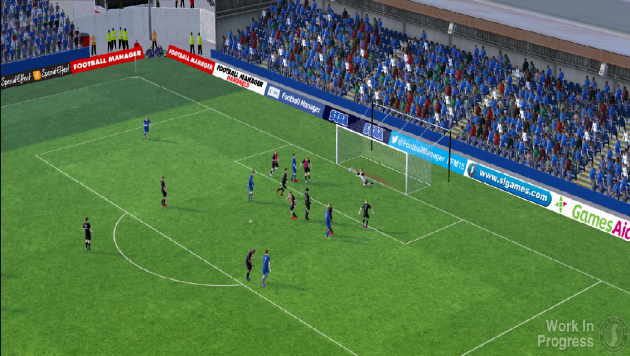
While his virtual scouting is purely for research purposes (particularly if his wife asks what he’s doing) Iain Macintosh is a man with a pretty good grasp of just how good the game’s database is. A football writer for ESPN and The Mirror, and co-author of Football Manager Stole My Life, Macintosh happily admits to using the game as part of his preparation, particularly when covering relatively obscure teams in Europe. “The database on the game is absolutely extraordinary and it’s more trustworthy than a lot of sources you’ll find online,” he says.
“I remember covering a Ukrainian team called Dnipro and I didn’t have an awful lot of knowledge on them, so I booted up the game and played a pre-season with them. That familiarised me with little things like who the goalkeeper was or who the biggest striker was. You do that for about half an hour and then you go off and do proper research the old-fashioned way, but you find it so much easier because it’s not just a whole selection of unfamiliar names anymore.”
Scout’s honour
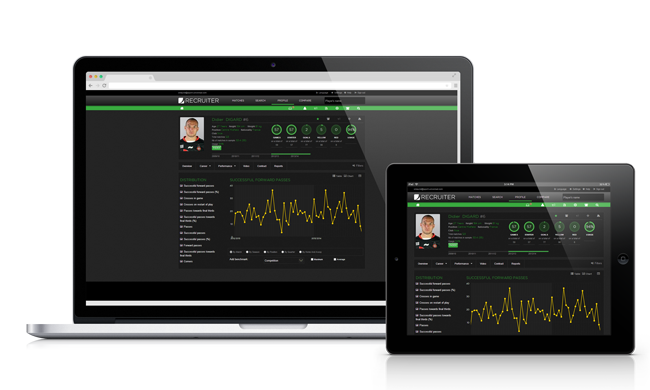
Just as no team should sign a player off the back of a YouTube highlights reel, neither should they sign one purely from seeing them on Football Manager, but the game does have the required accuracy and a proven track record to act as a trustworthy “pre-scouting” tool. ProZone’s Recruiter takes the game’s biographical, contractual and positional information, which can be used to compile a shortlist of players for a club to go and see in the flesh.
“There’s nothing my dad hates more than an agent just sending in a DVD of a player’s best bits,” Jon McLeish, who now works as a football consultant for a sports management agency, tells Stuff. “Nine times out of ten the stats from Football Manager are pretty accurate. If it says a player has 12 out of 20 for pace, it’s unlikely to be 19 in real life. It may be one either side but it’ll be fairly accurate. I know a lot of head scouts and they pride themselves on doing their homework. They’ll all use various systems like that to try and find the best players.”
READ MORE: FIFA 15 review
Underage thinking
Unfortunately a discovery like Jon’s wouldn’t happen today, purely because Sports Interactive isn’t allowed to include players under 16 years of age in the game – but the adolescent stars of the future are still in the database just waiting to reach discoverable age. That means 15-year-old Norwegian wonderkid Martin Ødegaard can’t be in this year’s game, but hotly tipped playmaker Hachim Mastour from AC Milan can be. No doubt McLeish Senior is lining up bids for both right now.
“There are very young players on the database,” explains Jacobson (pictured). “We know of some 10-year-olds who are tipped for big things but typically we’ll start watching them when they’re about 14 or 15. At the moment my favourite young player is a guy at Bayern Munich called Pierre-Emile Højbjerg, who can play in most roles across the midfield. For me he is the hottest of hot prospects.”
Of course, for every Leo Messi or Vincent Kompany – who Jon McLeish spotted as a youth player at Anderlecht, impressed by his ability to play in multiple positions – there’s a Cherno Samba. “Somebody should write a book about Cherno Samba,” says Macintosh wistfully. “He was so good at youth level in real life that I think Liverpool were preparing an absolutely enormous bid for him. On the game he was just ridiculous. He was like having a cheat mode.”
So why isn’t Cherno held in the same regard as Messi or Ronaldo? Well that Liverpool move never happened, and stints at Cadiz, Plymouth Argyle, Panetolikos and most recently Norwegian Second Division side FK Tønsberg are hardly comparable to competing in El Clasico and fighting it out for FIFA’s Ballon d’Or year after year. Cherno is one of the FM legends that sadly never was.
“Obviously we’ve got a few wrong,” Jacobson admits, “but every manager gets a few wrong.” And he’s quite right. Remember Eric Djemba-Djemba, Bebe or Michael Johnson? There’s more to success than just great stats – for both individual players and whole teams – and Jacobson and the Football Manager team is in a better position to explain that than anyone.
READ MORE: The 25 most anticipated games of 2015
Human after all
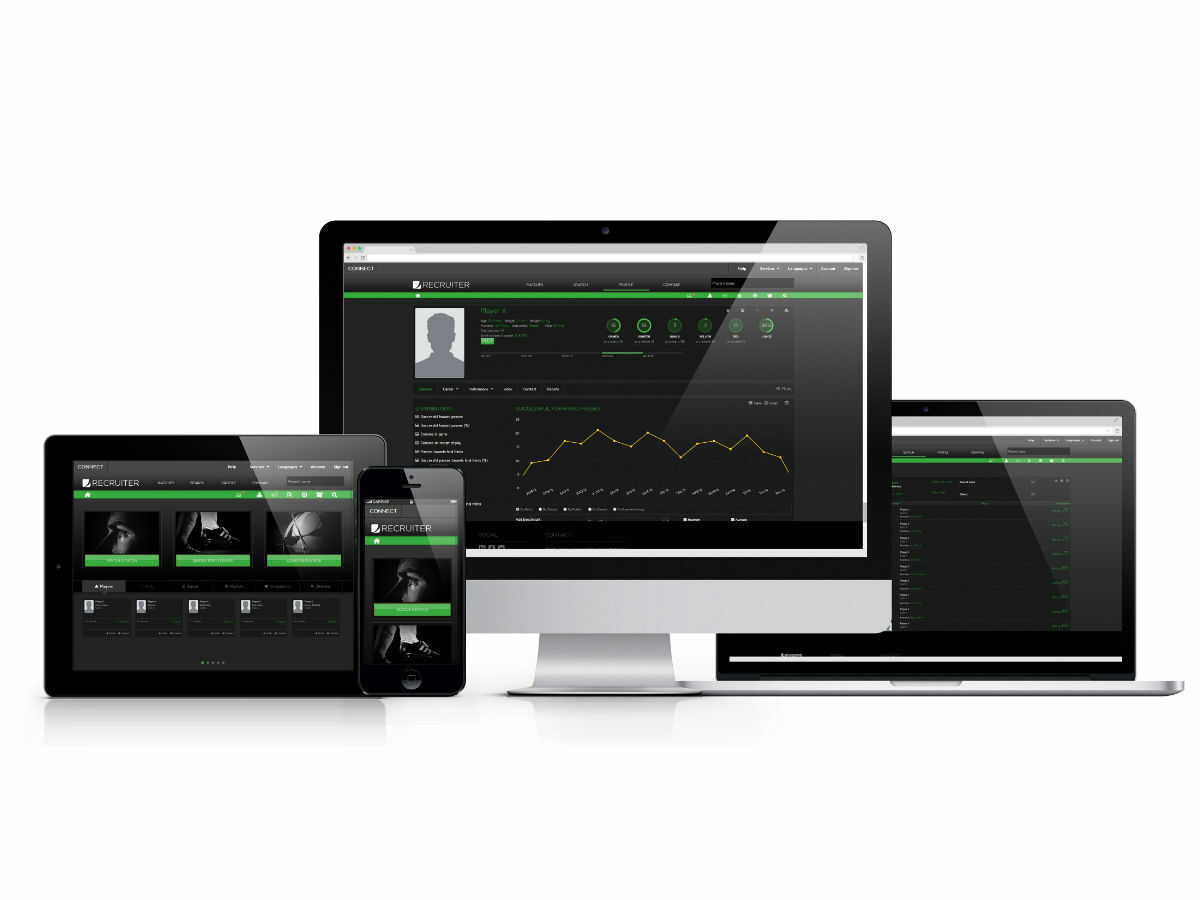
“There are games every week – not just a few times a season – where a team will dominate yet lose,” says Jacobson. “It happens because humans are involved.” And that’s the mysterious alchemy behind the game’s match engine. How do you turn a load of numbers into a realistic football match?
It’s at this point the information flows the other way and has done for a number of years. ProZone works with over 300 football clubs around the world, using cameras trained on every single player on the pitch to analyse matches. “We use their systems the same way clubs use them,” Jacobson explains, “to look at where players have been standing during different phases of play. We’re trying to be a simulation of football, so we need to make sure that all of the player positioning is absolutely spot-on.”
Led by Sports Interactive co-founder Paul Collyer the match engine has been 20 years in the making and it takes new recruits years before they’re allowed to really get stuck into it. “The time is spent studying, fixing smaller things and trying to work out how it works,” says Jacobson. “It’s incredibly complicated code.”
A game of two halves
This two-way exchange of ideas and information, whether it’s intentional or not, is also evident in the visual style of coaching apps and software, such as Wyscout (above) and Globall Coach (below). Those little round player markers and profile pages look awfully familiar, right?
But that’s hardly surprising with so many people in the sport who’ve grown up playing the game. Jacobson cites Villas-Boas, Ole Gunnar Solksjær and the 600 beta testers within the industry that include everyone from current players and scouts to chief executives and kit men. Italy’s foremost midfield architect, wine connoisseur and beard owner Andrea Pirlo is also said to be a fan, while former AC Milan captain Demetrio Albertini ended up being the club’s researcher for the game.
Sports Interactive’s most recent recruit even came from PricewaterhouseCoopers, where he was working for UEFA on Financial Fair Play. “To me that shows quite how far we’ve come on a football level, that we have people from inside the sport wanting to come and work here,” Jacobson says.
Stats your lot
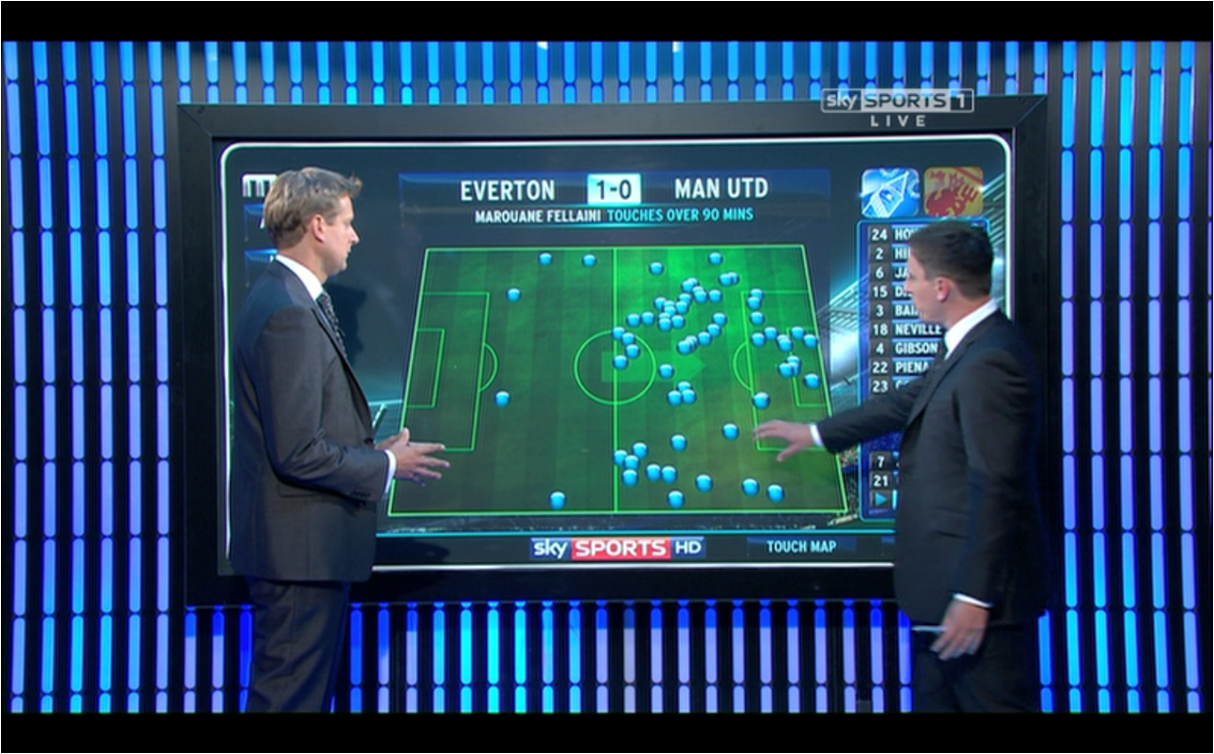
The game’s reach into the sport could also go some way to explaining football’s recent obsession with statistics. Is it why we now get a breakdown of touches in the opposition box and percentage of possession in their half every time Sky’s post-match pundits take to the touchscreen to pick apart a team’s performance? “All the people that played the game when it first came out in 1993 are now running the world,” says Macintosh. “They’ve grown up with this level of statistical analysis and probably now expect it.”
Simon Banoub, director of marketing for stats king Opta Sports, agrees: “The generation of fans who have grown up playing games such as Football Manager and FIFA have helped us to grow the interest in football stats by having an instinctive understanding of why it is an interesting and important area of the game.”
Better than life
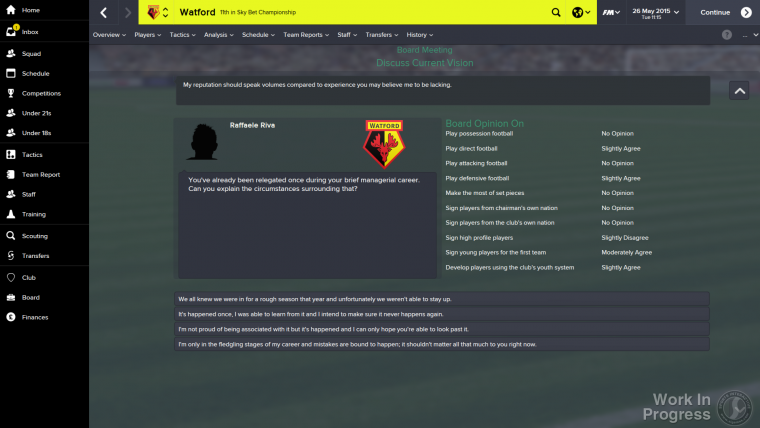
So what’s next? The Premier League’s first manager with only in-game experience? Coaches trained with nothing but a PC and a copy of FM2015? While its stricter financial constraints could certainly teach a few clubs a thing or two about money management – and some sports science university courses do use it to teach students about Financial Fair Play – Jacobson admits his game won’t fully prepare you for a job in the dugout or on the training pitch.
“You’ll certainly have a good player knowledge, a good basic knowledge of how a football club is run from the financial side of things, you’ll have the basics on tactics and a very good knowledge of player roles, but you still need to go and do your coaching badges,” he says, shattering the dreams of laptop tacticians the world over.
“Our match analysis tool inside Football Manager is pretty good, but it’s not as good as ProZone’s, so we are looking forward to learning more about them from that side of things. As we work together I think there will be more things we start doing together, both in the game and away from it. It’s a very exciting time for us; not only are we making the best games we’ve ever made but we’re also finding that the football world is completely open to us. There will hopefully be a bunch of announcements next year once we get a few things signed.”
A Messi night in Glasgow

Eventually Alex McLeish did take his son seriously, but it took an encounter with Spain’s Under-21s and a familiar name on the opposition team sheet to convince him that Football Manager wasn’t just another computer game: “As the years went on I pointed out these kids called Xavi and Iniesta as well,” Jon says. “Xavi played in that U21 game and my dad said he remembered the name because I kept going on and on and on about him.
“So eventually he enquired with Barcelona about taking this boy Messi on loan at Rangers. They said he was a bit lightweight and probably needed to go out and get some games to bulk himself up, but about two weeks later he made his debut for Barcelona. The rest is history.”
It’s difficult to imagine what might’ve happened had the greatest player of his generation spent a season in the Scottish Premiership, but fortunately there’s a game that’ll let you find out.
Messi photo by Matthias Hangst/Getty Images for Sony
READ MORE: The 25 best football games ever
